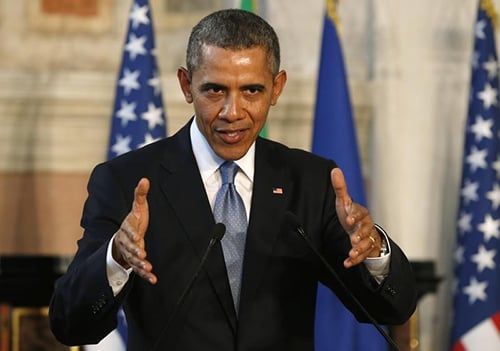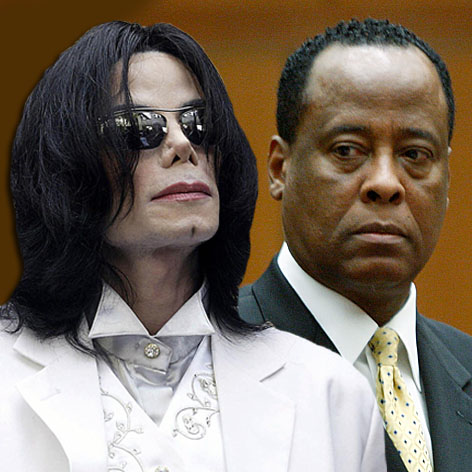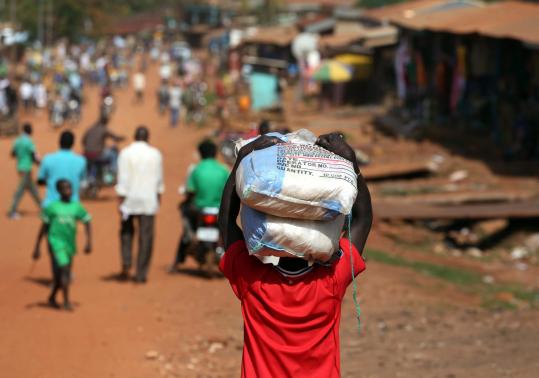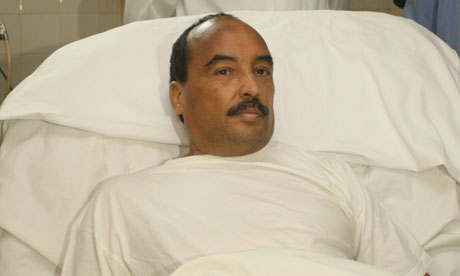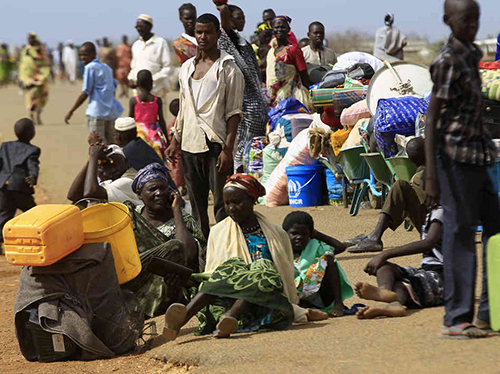US President Barack Obama has reaffirmed his support for Japan in its row over islands with China, after talks with Prime Minister Shinzo Abe.
Mr Obama, who is on a four-nation Asia tour, warned against escalation in the dispute and said he wanted to see the row resolved peacefully.
But he confirmed that the islands fell under a security treaty that commits the US to act if Japan is attacked.
The two leaders also discussed a major trade deal as well as North Korea.
Advertisement
The US president arrived in Japan late on Wednesday ahead of stops in South Korea, Malaysia and the Philippines.
It was, as expected, a delicate balancing act for Mr Obama.
Referring to disputed islands in the East China Sea as the Senkaku, he made it clear US troops would defend them if China ever tried to take them by force.
Advertisement
But he also stressed that he wanted Tokyo and Beijing to make much more effort to talk to each other, and he called on both to tone down the rhetoric.
Mr Obama went out of his way to portray the Japan-US relationship as close and friendly. At one point he referred to Mr Abe as Shinzo – only close friends in Japan use first names.
But on trade he said it was time for Mr Abe to act boldly to open Japan’s markets to more American-made goods. He said that was his bottom line and he would accept no less.
He is not going to Beijing but relations with China are expected to dominate his meetings with regional leaders.
Advertisement
‘Deep belief’
Mr Obama’s trip – which ends on 29 April – comes nearly seven months after he cancelled a visit to the region because of a US government shutdown.
Officials say it is aimed at reassuring America’s Asian allies of its commitment to the region amid concern over China’s growing power.
On Wednesday Mr Obama had an informal dinner with Mr Abe. The two leaders then held talks on Thursday morning and gave a joint press conference.
Advertisement
“Article five [of the US-Japan security treaty] covers all territories under Japan’s administration including [the] Senkaku islands,” Mr Obama said, echoing comments published in Wednesday’s Yomiuri newspaper. “We do not believe that they should be subject to change unilaterally.”
Obama’s Asia tour
Advertisement
- 23 Apr: Arrives Tokyo (evening) for dinner with Japanese PM Shinzo Abe
- 24 Apr: In Tokyo; talks and joint press conference with Abe, state dinner
- 25 Apr: Flies Tokyo-Seoul; talks and press conference with South Korean President
- 26 Apr: Visit to military base; flies to Kuala Lumpur and state dinner
- 27 Apr: Talks with Malaysian PM Najib Razak, press conference
- 28 Apr: Flies to Manila, talks with Philippine President Benigno Aquino
- 29 Apr: Ends visit to Philippines, returns to US
“This is not a new position. This is a consistent one,” he said.
However, Mr Obama also said he told Mr Abe that it “would be a profound mistake to continue to see escalation around this issue instead of dialogue”.
Advertisement
The islands are called Senkaku in Japan and Diaoyu in China.
Japan controls the islands but China has been strongly pressing its claim in recent months, flying and sailing vessels in and out of what Japan says are its waters and airspace.
Advertisement
Japan depends on the US for its security, under a decades-old alliance that dates back to the end of World War Two. If Japan is attacked, the US is obliged to come to its aid.
Nuclear test?
China’s foreign ministry said on Wednesday that it opposed the US stance
Analysis
PJ Crowley Former US Assistant Secretary of State
The region has welcomed renewed American engagement to balance an assertive China. Each country Mr Obama visits has some kind of territorial dispute with China and will be looking for assurances the US will be there if push ever comes to shove.
Mr Obama faces a delicate balancing act, reasserting America’s commitment to the region and the importance of its security relationships without feeding China’s concerns that Washington’s actual policy is not engagement but containment.
- Obama’s Asia tour ‘reassures allies’
“The so-called US-Japan alliance is a bilateral arrangement from the Cold War and ought not to harm China’s territorial sovereignty and reasonable rights,” spokesman Qin Gang said in Beijing.
Mr Abe and Mr Obama also discussed the Trans-Pacific Partnership, a giant trade deal involving 12 nations.
It is currently stalled partly due to a row between the US and Japan over agricultural tariffs.
North Korea was also on the agenda. Mr Obama wants Tokyo and Seoul to work together on the issue, but ties between the two remain badly strained because of war-related historical issues.
The US president flies to Seoul after Tokyo, amid reports of increased activity at Pyongyang’s nuclear test site – potentially suggesting a fourth nuclear test could be imminent.
“China’s participation in pushing the DPRK [North Korea] in a different direction is critically important,” Mr Obama said.
BBC
Add a comment

